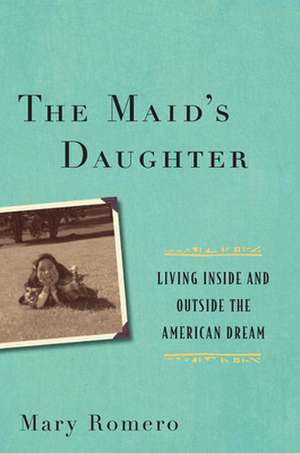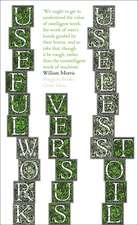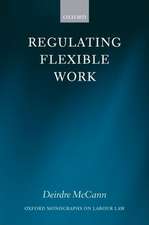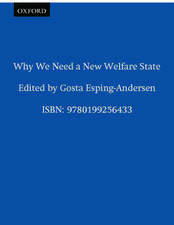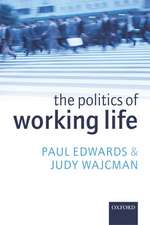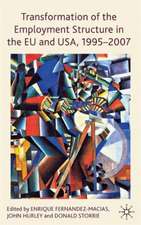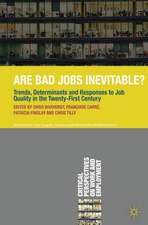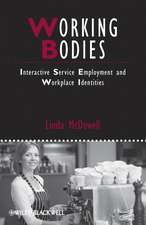The Maid`s Daughter – Living Inside and Outside the American Dream
Autor Mary Romeroen Limba Engleză Paperback – 30 dec 2012
Selected as a 2012 Outstanding Title by AAUP University Press Books for Public and Secondary School Libraries
This is Olivia's story. Born in Los Angeles, she is taken to Mexico to live with her extended family until the age of three. Olivia then returns to L.A. to live with her mother, Carmen, the live-in maid to a wealthy family. Mother and daughter sleep in the maid's room, just off the kitchen. Olivia is raised alongside the other children of the family. She goes to school with them, eats meals with them, and is taken shopping for clothes with them. She is like a member of the family. Except she is not. Based on over twenty years of research, noted scholar Mary Romero brings Olivia's remarkable story to life. We watch as she grows up among the children of privilege, struggles through adolescence, declares her independence and eventually goes off to college and becomes a successful professional. Much of this extraordinary story is told in Olivia's voice and we hear of both her triumphs and setbacks. We come to understand the painful realization of wanting to claim a Mexican heritage that is in many ways not her own and of her constant struggle to come to terms with the great contradictions in her life.
In The Maid's Daughter, Mary Romero explores this complex story about belonging, identity, and resistance, illustrating Olivia's challenge to establish her sense of identity, and the patterns of inclusion and exclusion in her life. Romero points to the hidden costs of paid domestic labor that are transferred to the families of private household workers and nannies, and shows how everyday routines are important in maintaining and assuring that various forms of privilege are passed on from one generation to another. Through Olivia's story, Romero shows how mythologies of meritocracy, the land of opportunity, and the American dream remain firmly in place while simultaneously erasing injustices and the struggles of the working poor.
A happy ending for the maid's daughter: Hector Tobar's profile of Olivia for the LA Times
| Toate formatele și edițiile | Preț | Express |
|---|---|---|
| Paperback (1) | 225.71 lei 6-8 săpt. | |
| MI – New York University – 30 dec 2012 | 225.71 lei 6-8 săpt. | |
| Hardback (1) | 528.23 lei 6-8 săpt. | |
| Wiley – 31 aug 2011 | 528.23 lei 6-8 săpt. |
Preț: 225.71 lei
Nou
Puncte Express: 339
Preț estimativ în valută:
43.19€ • 45.10$ • 35.66£
43.19€ • 45.10$ • 35.66£
Carte tipărită la comandă
Livrare economică 16-30 aprilie
Preluare comenzi: 021 569.72.76
Specificații
ISBN-13: 9781479814664
ISBN-10: 1479814660
Pagini: 278
Dimensiuni: 152 x 229 x 15 mm
Greutate: 0.36 kg
Editura: MI – New York University
ISBN-10: 1479814660
Pagini: 278
Dimensiuni: 152 x 229 x 15 mm
Greutate: 0.36 kg
Editura: MI – New York University
Recenzii
"This detailed, intimate investigation of domestic work from the perspective of a domestic worker's child is a significant achievement that reads like a more academic Random Family. Publishers Weekly "Romero is again the perfect scholar respectful, curious, honest about her own orientation. She's a listener, allowing the women she talks with to guide the way in which their stories are revealed... It's very moving work; thoughtful, sensitive, the best possible use of scholarship to open our eyes. Los Angeles Review of Books "Readers who found the popular novel The Help annoyingly glib and superficial may find The Maid's Daughter, an oral history and sociological study, astonishingly complex and often raw with emotion." Washington Independent "Two decades of research culminate in the real-life story of a Mexican-American girl navigating issues of class, race, and identity in contemporary Los Angeles. Los Angeles Magazine
Notă biografică
Descriere
Shows how mythologies of meritocracy, the land of opportunity, and the American dream remain firmly in place while simultaneously erasing injustices and the struggles of the working poor
